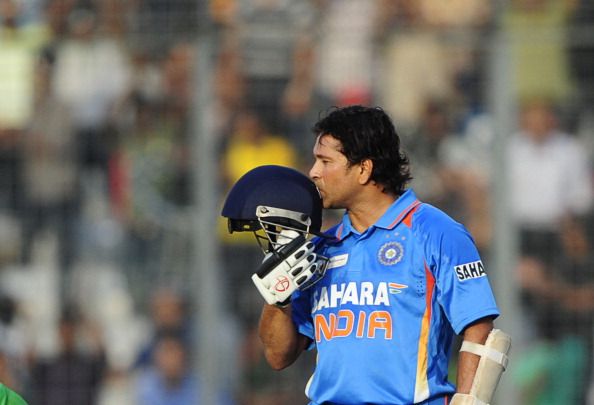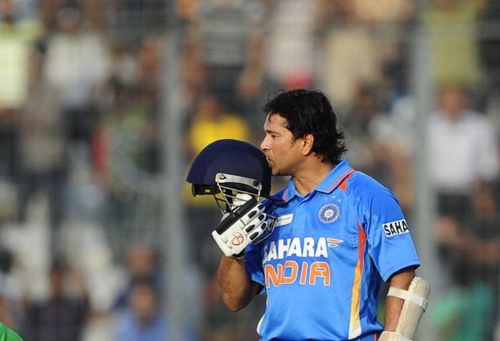
Why is anything less than a century not acceptable?

Centuries are not everything…
Milestones, landmarks, records, benchmarks. There’s a peculiar and quite inexplicable mentality that the fans (and cricket experts, too) show when it comes to the three figure mark.
Over a period of hundred years, the hundred-mark has become such an important factor, that it is one of the most important parameters for judging a batsman. Obviously, the more the number of centuries, the better the batsman is considered to be. Not that it’s wrong in any way, but people around the world seem to give too much importance to whether a batsman gets to his hundred or not.
The hype is such that even the best of batsmen start feeling insecure when they’re unable to convert their knocks into hundreds. The hoopla that surrounds the cricketing world is essentially due to the benchmark that was set years ago. The 50, the 100, the 200, the 300, the 400, the 5-wicket haul, the 10-wicket haul, the hat trick… the list is endless.
The ‘benchmark’ is looked at so seriously (and rather blindly), that at times, we fail to see (and acknowledge) the performances that make a difference in winning causes, or contribute significantly to the overall score of the team. Yes, there are times when men become demigods by winning matches single-handedly, but such cases are rare.
What I’m trying to say here is that today, when a batsman makes a brilliant contribution with the bat (say a 70 or an 80), we hear talk of how irresponsible it was of him to get out when he could have gone on to score a century. People say that had Sachin Tendulkar converted his 90s into hundreds, he would’ve had even more centuries than what he has today.
This, when looked at as a fact, is totally correct. But the problem I see here is that his string of scores in the 90s are not respected (despite of the fact that most of them were in winning causes).
I’d blame it on the commentators, the media, the selectors, the coaches and the ‘experts’ of the game, because those are the primary influential sources which end up shaping the outlook of the fans around the world. This, in turn, ends up putting indirect (and unnecessary) pressure on the players.
So what if the guy does not get to his fifty, or hundred, or double hundred? As long as he is making a substantial contribution, that contribution needs to be acknowledged, irrespective of whether he crosses the pre-set benchmark(s) or not.
Yes, we want them to perform. We need them to perform consistently. But more than anything else, we must learn to appreciate the 40s, the 60s, the 70s, the 80s and the 90s. It’s about the way you look at it. In the end, winning games is more important than reaching ‘milestones’.